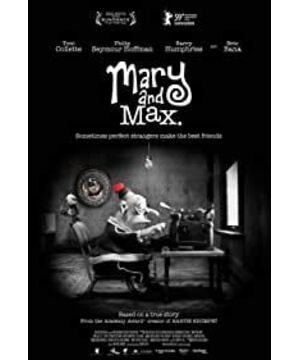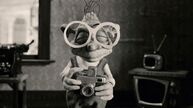Of course, these feelings are wrapped in a fairy tale shell, a buffer zone through which many people are deeply moved. They see themselves as Mary or Marx with unparalleled sincerity, and the film releases their accumulated loneliness.
However, even if the shell of this fairy tale is not false, it is fragile, and even with the director's personal experience as the background, it is extremely accidental. The style of the film is not Tim Button-style black humor, but downright black. I peeled back the shell, and what I saw was a depressing and gloomy film.
The twisted loneliness, the endless distance from another mind, the nightmarish city, it all permeates our lives. We live with them all day, almost inseparable. Where do they come from? Perhaps the world is moving too fast, far beyond the footsteps of ordinary people, and countless people have been abandoned in chaos. Perhaps, loneliness is not innate, an orphan who was left on a desert island, when he grows up, may not know what loneliness is. Loneliness is a hell created by lonely others.
No one knows the answer to this fundamental question for modern people who are fed and clothed. Imagining that there is a soul that can connect in the distance, thereby curing one's loneliness, is as illusory as expecting to buy Mark Six to get rich.
"Mary and Marx" is a fairy tale fruit that feels warm and comforting to eat, even though it has a black core.
View more about Mary and Max reviews











